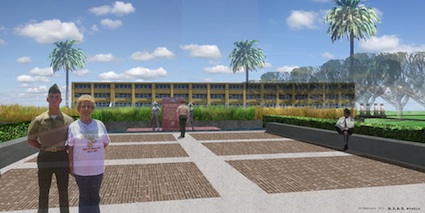Marine Recruit Depot to Install Ecological Wastewater Treatment System

CHARLOTTESVILLE, Va. — The Marine Corps Recruit Depot (MCRD) in San Diego will use a system from Living Machine System L3C to recycle backwater for subsurface irrigation, minimizing its water usage in the drought-prone area.
The company, a Charlottesville, Va.-based provider of water reuse technology, offers the Living Machine system — an ecological wastewater treatment and reuse technology for blackwater and greywater. The system will extract wastewater from an existing sewer line at the base and treat it to meet rigorous water reuse standards for the state of California, according to company officials. The onsite Living Machine system is expected to recycle 10,000 gallons of sewer-mined wastewater per day.
The MCRD provides basic training for more than 21,000 recruits annually and is recognized as one of the leading facilities for the implementation of clean technology by the Department of Defense.
“The Living Machine system offers us the opportunity to go beyond conventional water reuse technologies and achieve a significant new level of control over our water resources,” said Richard Hatcher, energy manager at the MCRD. “This is an opportunity for MCRD to demonstrate innovative technology, serve as a model for other Marine Corps facilities and be a partner in San Diego’s water-saving efforts.”
The Living Machine technology adapts to the tidal wetland and accelerates and enhances its plant and microbial activity with environmental engineering and information technology, according to company officials.
By reducing demand for imported freshwater and the need to lay new pipelines, Living Machine systems can cost-effectively boost water availability in drought-prone areas like Southern California, and reduce the burden of water restrictions, said Will Kirksey, global development officer at Living Machines Systems.
“To the thousands of recruits and their families who attend graduation ceremonies at the base, the Living Machine system will appear simply as a lush, tropical landscape feature near the parade ground and statues honoring marine drill instructors,” Kirksey said. “But the system’s real value is as an ecological water reuse system that ensures lasting water sources for both the military and the surrounding community.”
